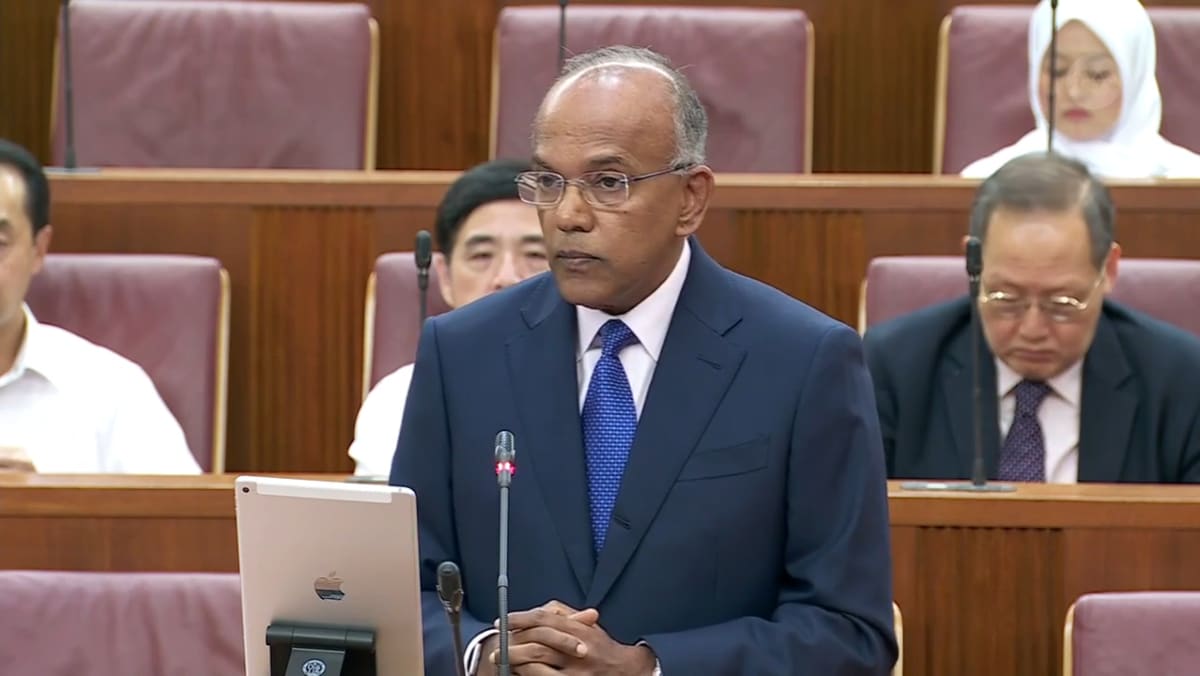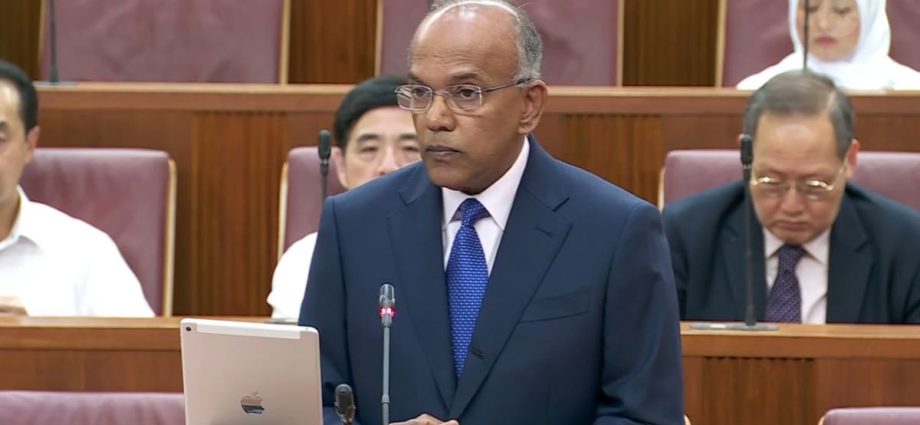
The details were shared by Senior Minister and Coordinating Minister for National Security Teo Chee Hean in a written parliamentary answer on Mar 2.
The question, filed by Mr Zhulkarnain Abdul Rahim (PAP-Chua Chu Kang), was about an e-book titled The Battle Over Lee Kuan Yew’s Last Will and the accuracy of the events presented in the book.
Mr Shanmugam said that the parliamentary question posed required discussing the accuracy of those public statements, and “the honesty or otherwise” of Lee Hsien Yang and Lee Suet Fern.
And it was also “relevant and necessary” to disclose that there are ongoing police investigations to give an accurate and full answer, he added.
“To summarise, the Disciplinary Tribunal and the Court of Three Judges had said Mr Lee Hsien Yang and Mrs Lee Suet Fern were lying. They had been found to be dishonest, and more. All of that is public. They have also essentially absconded from jurisdiction,” he said.
“We take this seriously. And those facts were disclosed, so that this House can have a full and complete picture, when a question had been asked which related to their conduct.”
He added that if government agencies are not able to prosecute the individual based on earlier court findings, if substantial new facts have to be proven and relevant evidence or witnesses are not available, then arguments can be made for and against disclosure.
PREJUDICE WAS “MARGINAL”
Mr Shanmugam explained that the case of Keppel Offshore & Marine Limited does not fall within the different exceptions and examples he had set out.
He said that the Corrupt Practices Investigation Bureau (CPIB) had “turned all the stones it could”, but concluded that it could not sustain any charges in court.
The conduct had taken place overseas, and key witnesses and documents are not available, Mr Shanmugam said.
“We got some information from Brazil, but it was not adequate to mount any criminal charge,” he said. “There were no admissions which could be relied upon to cross the evidentiary requirements.”
The minister said that in these circumstances, the general policy of not disclosing the names of individuals who have been under investigation applies. He challenged any MPs who disagreed with this general principle to raise their reasons and debate the issue with him.
In his parliamentary question, and in a supplementary question during Parliament, Mr Perera also asked what measures are taken to ensure that public disclosure does not prejudice the investigation in cases where such information is publicly divulged.
Mr Shanmugam acknowledged that if the investigations show that the named person is innocent, or an assessment is made that his guilt cannot be established in court, “a cloud would have hung over him” until his name was cleared. This is why names are generally not disclosed.
But in the case of Karl Liew, the prejudice to him in disclosing that he was under investigation for lying under oath was “marginal” and had to be weighed against the public interest at stake. And the same applied to the Lees, he said.
“The statements in Parliament do not materially add to any cloud the couple may already be under, based on what the Disciplinary Tribunal and the Court of Three Judges have said,” Mr Shanmugam said.
He added: “The investigation relates back to that very point on which the courts have taken a view – as to whether they lied, didn’t lie: That is why I said the prejudice is very marginal, if any.”
Mr Shanmugam also mentioned another case under investigation where the highest court had made observations that a couple of people had lied on oath.
“If there is a relevant question or issue about that matter, I can see that we will also set out the facts and say that police are investigating,” he said.
“But just like with Mr Lee Hsien Yang and Mrs Lee Suet Fern initially, when investigations had first commenced, police had not volunteered the information. But police will respond with the facts if there is a need to, for example, if questions are raised in Parliament.”

